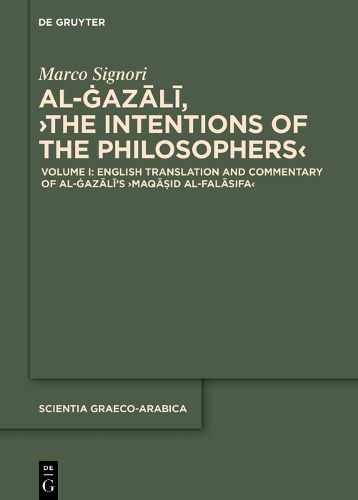Readings Newsletter
Become a Readings Member to make your shopping experience even easier.
Sign in or sign up for free!
You’re not far away from qualifying for FREE standard shipping within Australia
You’ve qualified for FREE standard shipping within Australia
The cart is loading…






This set of books offers the first complete English translation of Abu ?amid al-Gazali's The Intentions of the Philosophers [Maqa?id al-falasifa], an encyclopaedic philosophical summa on logic, metaphysics, and physics, in fifteen treatises, heavily inspired by Avicenna's thought. The translation is accompanied by an analytical running commentary and by a comprehensive monographic study on the work.
Volume 1 presents the reader with a full English translation of, and an ample commentary on, the Maqa?id al-falasifa. The translation is based on a new inspection of Arabic manuscripts and the collation of the Arabic text with the medieval Latin version of the work, and it corrects the available Arabic editions in several points. The running commentary, addressing philological, philosophical, and historical issues, not only grants a full comprehension of the varied contents of the work, but also contributes to the academic study of Arabic philosophy, by clarifying the role of philosophical handbook played in history by al-Gazali's work.
$9.00 standard shipping within Australia
FREE standard shipping within Australia for orders over $100.00
Express & International shipping calculated at checkout
This set of books offers the first complete English translation of Abu ?amid al-Gazali's The Intentions of the Philosophers [Maqa?id al-falasifa], an encyclopaedic philosophical summa on logic, metaphysics, and physics, in fifteen treatises, heavily inspired by Avicenna's thought. The translation is accompanied by an analytical running commentary and by a comprehensive monographic study on the work.
Volume 1 presents the reader with a full English translation of, and an ample commentary on, the Maqa?id al-falasifa. The translation is based on a new inspection of Arabic manuscripts and the collation of the Arabic text with the medieval Latin version of the work, and it corrects the available Arabic editions in several points. The running commentary, addressing philological, philosophical, and historical issues, not only grants a full comprehension of the varied contents of the work, but also contributes to the academic study of Arabic philosophy, by clarifying the role of philosophical handbook played in history by al-Gazali's work.